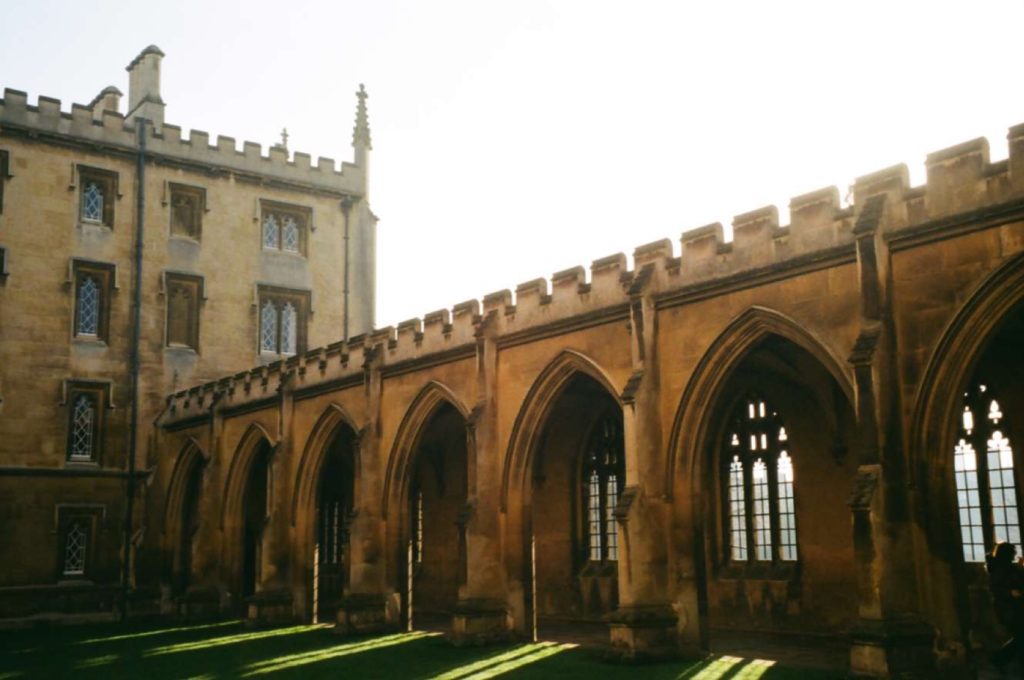
What would a socially distanced Cambridge look like?
Contemplating the uncertain and the unknown
Needless to say, since March 23rd our lives have been completely upended. To envisage our Michaelmas term is to consider the unknown, obscured by our government’s current lack of transparency. Our Vice-Chancellor Stephen Toope has outlined four potential scenarios for Michaelmas term, all either stipulating ‘stringent social distancing rules’ in Cambridge or ongoing lockdown at home. We are all so familiar with our current lockdown situations, but what would a COVID-19 Cambridge look like?

Photo credit: Archie Hamerton
If it’s a measure unfamiliar to you, the R number of our population is the figure shaping the government response to COVID-19. In order to contain virus transmission, the R number should not be higher than 1, meaning that any infected person should transmit it to less than one other person. The likelihood is, when we eventually return to Cambridge this figure will dictate our social interaction, regardless of government regulations. Inexorably this measure poses issues in a Cambridge context.
Will students of Trinity, a college of over 1000 students be more jeopardised than Magdalene, with under 600? Will visits to the library, the canteen, be fastidiously policed? The very essence of Cambridge embodies proximity; our college communities, supervisions, formals, libraries. It’s worth considering whether a socially-distanced Cambridge will be reminiscent of the community we love.

Cambridge in the wake of COVID-19 will certainly be unfamiliar to us all, yet arguably some will have to acclimatise in more exacting circumstances. In particular, freshers will likely be expected to integrate into a community that they’re prohibited from interacting with. There is an obvious absence of typical ‘fresher’ events, like Matriculation, bar crawls and clubbing. Whats more, as first years we often take for granted lectures and library hours, less obvious social occasions that adjust you fully into Cambridge life.
Moreover, social distancing measures pose issues to STEM students, wherein practicals are an integral part of their degree. NatSci students are currently substituting practicals for protocols, losing the crucial tactile aspect of the learning. Graduate students remain in a tenuous situation; lockdown measures not only impede their research but threaten scholarships and financial stability.
That acknowledged, if limited social engagements are permitted – can we expect students to engage in them? Scientific procedures for lifting lockdown can fail to factor in subjective understandings of returning to ‘normalcy’. A recent poll conducted by Ipsos Mori revealed a majority of UK respondents were uneasy about leaving the confines of their home.
After only 6 weeks of lockdown, many would conceive of the prospect of venturing outside and engaging in society as unnerving if not terrifying. The crux of the issue may not be the government’s stipulations but preparing ourselves to appreciate alleviated restrictions. Does this pose a more integral moral dilemma? How do colleges accommodate those uneasy with social interaction? How can we trust that those with symptoms are self isolating? Does this mean a confinement of our social circle? How will this impact social relationships?
Currently, ‘stringent social distancing’ measures appear untenable to implement and police in a university renowned for interpersonal education and vibrant college communities. When social distancing restrictions are alleviated, the issue is one of choice not restriction; policing personal autonomy poses innumerable issues.
Lessons from previous epidemics are important for us to consider at this time. Research on the psychological impact of such situations reflects the worrying mental health repercussions of social determinants like isolation, stress and financial concerns. We need to come together as a community; reach out to your college friends, your course mates, ask your supervisor how they are. The time when we most need community is when we are without a physical one.









































